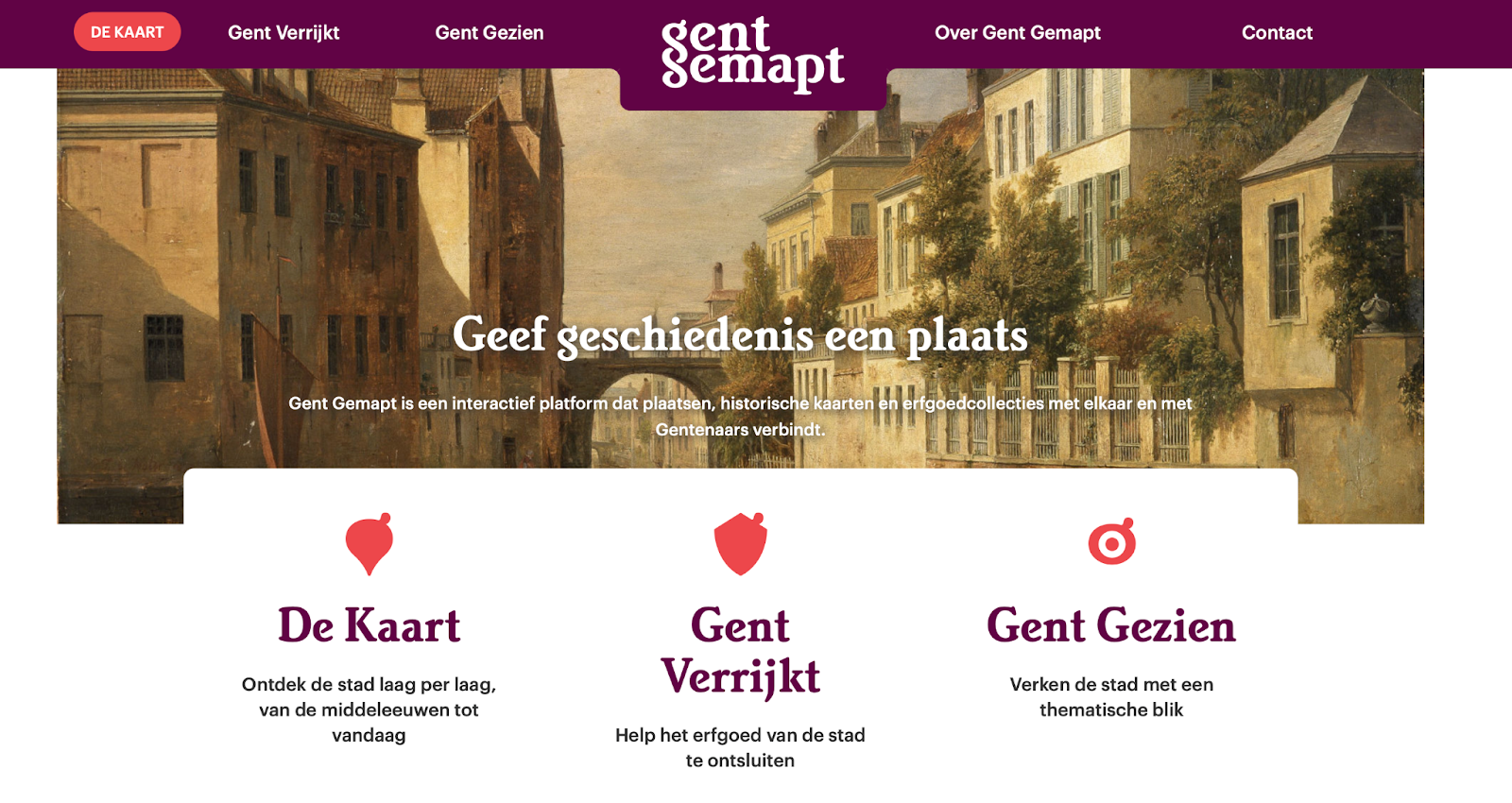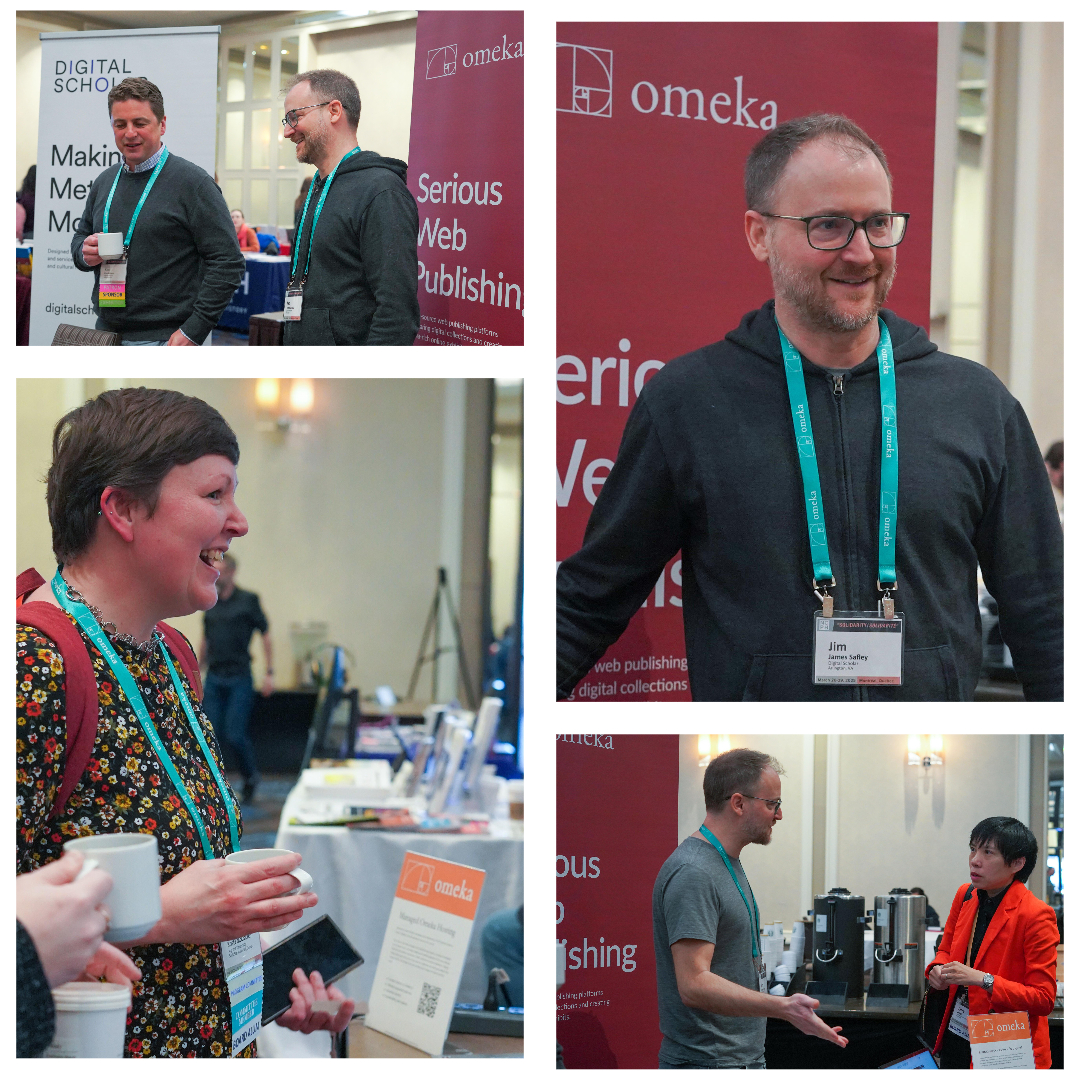Message from the Director
Dear Friends,
The last month in the United States has been extremely troubling for memory workers, scholars, students, and members of the public who work with and care about cultural heritage.
The hearts of the whole Omeka Team go out to every individual and organization who has had a federal grant cancelled, and to the many, many dedicated public servants at the Institute for Museum and Library Services, the National Endowment for the Humanities, and the National Park Service who have had their jobs eliminated.
In this time of upheaval, we want to provide some context about how the Omeka Team operates and also the safety of your work with our software.
-
Omeka and all of its associated offerings are fully independent of grant funding and are not affiliated with any university. Omeka is sustained through the proceeds derived from Omeka.net subscriptions and from the fees associated with the services we offer. The project is a subsidiary of Digital Scholar, a company founded in 2009 to support and sustain key open source scholarly communications and cultural heritage projects, including Zotero, Tropy, Sourcery, and PressForward. As such, Omeka Classic, Omeka S, and their associated add-ons will always remain open source, and free for you to use.
-
As an independent project, work and services provided by the Omeka Team are not impeded by any current executive orders. If you have a project that you have developed on Omeka.net with your subscription or if you host Omeka’s open source software with us or an independent internet service provider, your work is yours, and it is safe from intrusion. Of course, if funding or hosting for your Omeka project is provided by an institution, the administration’s policies could affect that institution and thereby your project.
Our primary goal at Omeka is to help you build the sites you want to build with your digital cultural heritage. That might mean digitizing and describing a collection of 19th century letters. Or, it might mean launching a digital collecting project that documents a local community’s struggle with deindustrialization. It might even mean telling the stories of federal workers who have lost their jobs. No matter how you use Omeka, we are here to support you.
With my solidarity. Sharon
New Developments
Five questions with Jim Safley about the static site export addons which are under development:
Tell us about the Static Site Export add-ons you’ve been working on.
The add-ons (an Omeka S module and Omeka Classic plugin) will migrate Omeka sites into static sites. A static site is a website that is delivered to a browser exactly as stored, in contrast to a dynamic site which is generated by a web application (like Omeka). The idea here is to drop technical dependencies and improve performance and security. This is part of a larger effort by Omeka to provide our users options for the long-term preservation and access of content stored on their installations.
What kinds of functionality or interface could a user expect to be different in the exported version of a site?
We aim to minimize functional and visual differences between an Omeka site and its static site. Even so, there will be differences. The extent of these differences will vary from site to site, but the basic structure will be the same.
How did you select Hugo as the output format for the export?
Hugo fits all of our requirements for a static site generator. It’s open source. It has extremely fast build time. Its templating language is powerful and flexible. It’s relatively easy to use. In addition, the larger Hugo community provides plenty of ways to enhance the user experience of static sites, including search, analytics, and comment engines.
Why do you and the Omeka Team think this work is important?
We know that the long-term preservation and accessibility of Omeka content is an important part of our users’ strategic needs. We want to help our users manage risks like data degradation, technological obsolescence, and loss of funding by facilitating the migration of content to a format that minimizes these risks.
When can we expect to see these add-ons released?
The Omeka S module is completed and in testing. We will release it once testing is finished and all critical issues are resolved. The Omeka Classic plugin is under development. We will release it once work and testing is done.
Spotlight: Gent Gemapt

This quarter’s Omeka newsletter Spotlight is Gent Gemapt. This project combines deep mapping with archival materials that results in a robust digital project built using Omeka S. Using urban gazetteers of the city of Ghent as a foundation, this project unites a variety of archival materials to create a multi-modal, space-based narrative connecting various elements of the city’s robust cultural heritage. Visitors to the site can participate in creating transcriptions as well as date, describe, and identify materials from various museums and archives. The project uses custom resource templates to integrate information from the gazetteers, and the mapping page is built using a combination of Leaflet, Omeka S, IIIF and OpenStreetMap. Gent Gemapt is funded by the Flemish Government - Departement Cultuur Jeugd Sport en Media. Collaborators on the project include Ghent University Library, AMSAB-ISG, Liberas, STAM Gent, Archief Gent, Huis van Alijn en Industriemuseum. GhentCDH finances the development of underlying technologies and the Urban Gazetteer with support of Clariah-Vlaanderen. Explore the collections and learn more about the project today.
Share your work with us for inclusion in our directories, and for a possible future Spotlight!
Meet the Team

Name: Dani Willcutt
Role: Training Specialist
How long have you been with Omeka?
Since October 2024, but I used and taught undergraduate and graduate students how to use the platform as well. One example is this class website devoted to the Battle of Prairie Grove in the U.S. Civil War.
What work have you done that our community would be familiar with?
I have also worked with the Roberson Project at Sewanee (the University of the South) as the Digital Humanities Lead Developer for Sewanee Praises (where one of my tasks was building this community-focused site)- Sewanee Praises is “a collaborative academic initiative involving teams of architecture and design students and faculty from Virginia Commonwealth and Virginia Tech universities in partnership with the people of Sewanee’s historic African American neighborhoods, and supported by the University of the South’s Roberson Project on Slavery, Race, and Reconciliation.” I am also working at Matrix Center for Digital Humanities and Social Science at Michigan State where I am building a database of historical restaurant menus using Omeka-S (the project isn’t live yet but is named Menu Made America).
Do you have a favorite project you’ve worked on or just a favorite part of working with the Omeka team/community?
I really enjoy learning and using digital tools which I think translates into how I enjoy teaching with digital tools like the Omeka platforms. My favorite part of joining the Omeka team is being able to enjoy my work and what I do. Part of what I enjoy is being able to help others (people, institutions, programs) to design and create their own projects and to bring them to fruition.
What’s a fun fact about you?
I enjoy painting and crafting, including paper crafts and making (and teaching with) zines.
Omeka in the World
The Omeka team had a blast getting to talk with our community at this year’s National Council on Public History Annual Meeting that was held in Montréal last month! Thank you so much to the organizers for putting on such an amazing event.

Starting clockwise from the upper left corner, the photo collage features: Ken Albers, Jim Safley, Na Li, and Krista McCracken.
Upcoming Event: Course Info Session
Join us for the Omeka Intensive Course Info Session on Thursday, May 15th at 12:00 PM EDT. In this webinar, Omeka instructor Dani Willcutt will provide a brief overview of the Omeka Classic and Omeka S intensive courses and will address audience questions. We will circulate the Zoom link the day of the event. Register now!